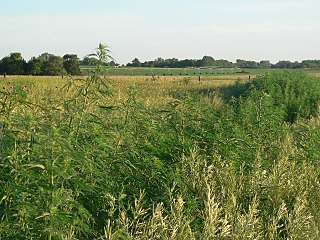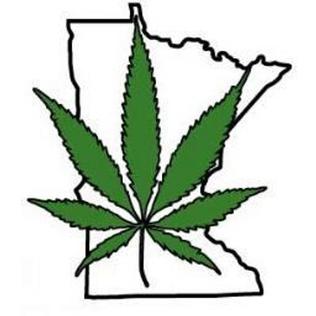Related Research Articles
The National Organization for the Reform of Marijuana Laws is a social welfare organization based in Washington, D.C., that advocates for the reform of marijuana laws in the United States regarding both medical and non-medical use. According to their website, NORML supports "the removal of all penalties for the private possession and responsible use of marijuana by adults, including cultivation for personal use, and casual nonprofit transfers of small amounts" and advocates for "the creation of a legal and regulatory framework for marijuana's production and retail sale to adults". NORML also has a sister organization, NORML Foundation, that focuses on educational efforts and providing legal assistance and support to people affected negatively by current marijuana laws. NORML operates in a number of other countries.

Seattle Hempfest is an annual event in the city of Seattle, Washington advocating the legalization of cannabis. Vivian McPeak serves as the organization's executive director. Founded in 1991 as the Washington Hemp Expo, a self-described "humble gathering of stoners" attended by only 500 people, and renamed the following year as Hempfest, it has grown into a three-day annual political rally, concert, and arts and crafts fair with attendance typically over 100,000. Speakers have included Seattle city council member Nick Licata, actor/activist Woody Harrelson (2004), travel writer and TV host Rick Steves (2007), (2010), 2012 Green Party speaker Jill Stein, Dallas Cowboys center Mark Stepnoski (2003), and former chief of the Seattle Police Department Norm Stamper (2006). Hempfest has also in recent years attracted such well-known performers as Fishbone (2002), The Kottonmouth Kings (2004), Rehab (2006), and Pato Banton (2007) to its five stages spread throughout Myrtle Edwards Park and Elliott Bay Park, on Seattle's waterfront.

Feral cannabis, or wild marijuana, is wild-growing cannabis generally descended from industrial hemp plants previously cultivated for fiber, with low or negligible amounts of psychoactive tetrahydrocannabinol (THC).

In the United States, the non-medical use of cannabis is legalized in 19 states and decriminalized in 12 states as of May 2022. Decriminalization refers to a policy of reduced penalties for cannabis offenses, typically involving a civil penalty for possessing small amounts, instead of criminal prosecution or the threat of arrest. In jurisdictions without penalty the policy is referred to as legalization, although the term decriminalization is sometimes used for this purpose as well.

The Boston Freedom Rally is an annual event in Boston, in the U.S. state of Massachusetts. Held on the third Saturday in September, it is traditionally the second largest annual gathering demanding marijuana law reform in the United States, after the Seattle Hempfest. After achieving the original goal of legalising marijuana recreational use in the state of Massachusetts in 2016, the rally is seen as a celebration of the change to the state's legal policy toward cannabis, a chance to educate the community, and an opportunity to keep marijuana-related issues in the public forum as the state continues to mold its marijuana regulatory and legislative framework. Some attendees also view it as a rally to lessen the restriction on public consumption of marijuana, with public consumption still banned, and violations leading to a US$100 civil fine. It is organized by the Massachusetts Cannabis Reform Coalition, Inc., the state's longest-standing marijuana advocacy group.

In the United States, the use of cannabis for medical purposes is legal in 37 states, four out of five permanently inhabited U.S. territories, and the District of Columbia, as of February 2022. Eleven other states have more restrictive laws limiting THC content, for the purpose of allowing access to products that are rich in cannabidiol (CBD), a non-psychoactive component of cannabis. There is significant variation in medical cannabis laws from state to state, including how it is produced and distributed, how it can be consumed, and what medical conditions it can be used for.

NORML New Zealand is a cannabis law reform organisation in New Zealand. It is a National Chapter of the National Organization for the Reform of Marijuana Laws (NORML).

In the United States, the use and possession of cannabis is illegal under federal law for any purpose by way of the Controlled Substances Act of 1970 (CSA). Under the CSA, cannabis is classified as a Schedule I substance, determined to have a high potential for abuse and no accepted medical use – thereby prohibiting even medical use of the drug. Despite this, most states have legalized either or both the medical and recreational use of cannabis.

The legal history of cannabis in the United States began with state-level prohibition in the early 20th century, with the first major federal limitations occurring in 1937. Starting with Oregon in 1973, individual states began to liberalize cannabis laws through decriminalization. In 1996, California became the first state to legalize medical cannabis, sparking a trend that spread to a majority of states by 2016. In 2012, Washington and Colorado became the first states to legalize cannabis for recreational use.

Cannabis in Indiana is illegal for recreational use, with the exception of limited medical usage. Possession of any amount is a Class B misdemeanor, punishable by up to 180 days in prison and a fine of up to $1000.

Cannabis in Arizona is legal for recreational use. A 2020 initiative to legalize recreational use passed with 60% of the vote. Possession and cultivation of recreational cannabis became legal on November 30, 2020, with the first state-licensed sales occurring on January 22, 2021.

Cannabis in Missouri is illegal for recreational use, but decriminalized through legislation passed in 2014. Medical use was legalized in 2018 through a ballot initiative to amend the state constitution. The first licensed sales began in October 2020.

Cannabis in Ohio is legal for medical use and illegal for recreational use. Since 1975, possession of up to 100 grams has been decriminalized, with several of the state's major cities having enacted further reforms. Medical use was legalized in 2016 through a bill passed by the state legislature.
Madeline Martinez is an American cannabis rights activist.

Oregon NORML is the National Organization for the Reform of Marijuana Laws (NORML) affiliate for the U.S. state of Oregon.

Minnesota NORML is the National Organization for the Reform of Marijuana Laws (NORML) affiliate for the U.S. state of Minnesota. As of 2017, Michael Ford served as the organization's executive director.

Texas NORML is a chapter of the National Organization for the Reform of Marijuana Laws (NORML) based in Austin, Texas. Jax Finkel serves as the organization's executive director. The organization's mission is to establish legal access to cannabis for all Texans.
Ohio NORML is the National Organization for the Reform of Marijuana Laws affiliate for the U.S. state of Ohio.

Cannabis rights or marijuana rights are individual civil and human rights that vary by jurisdiction. The rights of people who consume cannabis include the right to be free from employment discrimination and housing discrimination.
References
- ↑ Klare, Joe (22 February 2020). "At a Standstill in Indiana". www.marijuanatimes.com. Marijuana Times. Retrieved 15 June 2020.
- ↑ Tufts, Sierra. "Pro-marijuana organization ramping up efforts in Indiana". wane channel 15. Retrieved 24 September 2020.